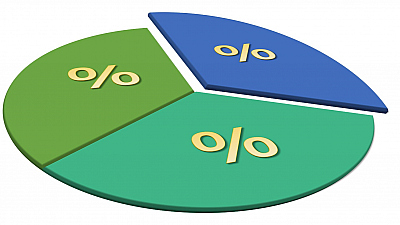The purpose of risk management is to minimize the risks as much as possible.
A trade with a high probability of profit, and zero risk is an extremely attractive idea, unfortunately it does not exist. A well-developed risk management system is mandatory for a long-term successful trading. The rules need to be clear and most importantly, they need to be followed. It is up to every trader to decide those rules, still there are general principles that are valid for everyone in the markets.
EDUCATE
You need to educate yourself as much as possible. Financial markets are a complex, ever-evolving environment that requires your time and effort to get to know it.
It is always useful to go through the history of the asset you are about to trade. Examine, understand and prepare for the worst-case scenario. Events that lead to extreme movements may be sporadic, but they do give a view of what is possible in that market.
In fact, the process of educating yourself should never stop, because there is always some new lesson to be learned in these dynamic, fast-moving, high-technology markets. Don’t expect to turn into an all-knowing expert, because the next thing you’ll see, the moment you stop in this financial highway, is the other players zooming by.
HAVE A PLAN
The financial markets are not the place to trust your instincts. This is the place where you must have a sound plan. You need to develop strict rules for entering and exiting positions and you need to comply with them at all times.
Invest enough time to develop profitable strategies. A strategy is considered profitable not when it turns every trade into profit, but when the long-term net effect is positive. Losing trades are part of the game and when you see your trade turn bad there’s only one thing you must do – follow the plan.
BE REALISTIC
Setting realistic goals is essential. You should have a clear view of what you can expect from a trade. Over-expectations can lead to taking unnecessary risk, and that might turn a profitable trade to a loss.
Greed is the thing you should not let into the equation, because it will lead to poor trading decisions. Trading is all about opening the right trade at the right time and closing it in strict accordance with your rules. The temptation of leaving a profitable position just a little longer so that you can make more money of it, in the end, may cost you dear.
USE A STOP-LOSS AND A TAKE-PROFIT
The stop-loss and the take-profit orders are a very good option for managing the open position. It is advisable to use them as part of your risk management system, as they provide objective boundaries to the trade. The take-profit will close the position once the expected profit level is reached. And the stop-loss will protect you if the market moves against you.
Take caution if you decide to move them while the position is still open and make sure that this complies with your trading rules.
LIMIT THE LEVERAGE
Leverage is one of the most exciting opportunities that the financial markets offer. It can multiply the gains from a profitable trade. But it can also magnify losses.
That is why it is advisable to use leverage with caution. High leverage should be applied by experienced traders who can evaluate the risks, associated with margin trading, while more unexperienced traders should use leverage moderately and only when they have a clear understanding of the situation.
DIVERSIFY
A good way to manage the risk is by diversification of your portfolio. That would mean three things, if you incur loss for some reason. First, its just a part of your money that is in that market. Second, your other positions are safe from the circumstances that led to your loss. And third, you may even be lucky enough to cover it with profits from the other markets.
Diversification is not always the best choice, though. Novice traders should avoid it, as a start, and rather choose few (or even one) markets and study them thoroughly. Only when they have enough experience should they diversify.
DISCIPLINE
This is the single most important trading rule. No risk management system can help a trader who fails to follow his own rules. Discipline is the measure of success. This includes sticking to the strategy even when your instincts tell you otherwise.
There will always be wins and losses. Celebrating the profit is as easy, as denying the loss. Traders must learn to accept their mistakes and exit bad trades as quickly as possible, instead of stubbornly holding them in hope that they would turn to profit.
Loss does not mean failure in trading language. But not taking the proper actions when the current trade is losing, does.




